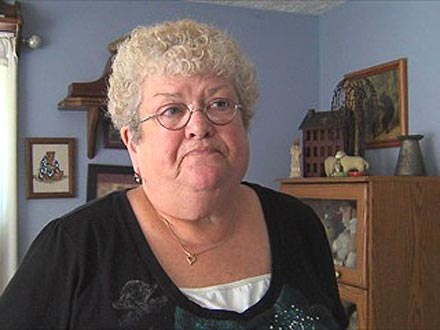BLACK INJUSTICE
The execution of Troy Davis last week stirred up a lot of emotional discussion regarding the irreversible punishment of the death penalty, and the historical connection of executing a black man over a crime he may not have committed. But the Troy Davis situation is not a new story.
If you’ve never heard the story of 14-year-old George Junius Stinney, Jr., then it’s time you did. And if you have any sense of humanity, the story should effect you emotionally and at least cause you to reconsider your thoughts on the death penalty.
66 years ago, 14-year-old George Junius Stinney, Jr. was accused of killing 2 white girls, 11 year old Betty June Binnicker and 8 year old Mary Emma Thames, by beating them with a railroad spike then dragging their bodies to a ditch near Acolu in central South Carolina. The girls were found a day after they disappeared following a massive manhunt. Stinney, who was a mere 7th grader, was arrested a few hours later by white men in suits who took him to a jail 50 miles away in Columbia.
 When the news went public, Stinney’s father, who had helped look for the girls, was fired from his job immediately and ordered to leave his home and the sawmill where he worked. His family was told to leave town prior to the trial to avoid further retribution. An hysterical lynch mob atmosphere hung over the courthouse and threatened the Stinney family through the court of public opinion.
When the news went public, Stinney’s father, who had helped look for the girls, was fired from his job immediately and ordered to leave his home and the sawmill where he worked. His family was told to leave town prior to the trial to avoid further retribution. An hysterical lynch mob atmosphere hung over the courthouse and threatened the Stinney family through the court of public opinion.
The sheriff at the time said Stinney admitted to the killings, but there is only his word. No written record of the confession has ever been found. Stinney’s defense lawyer called no witnesses and never filed an appeal. No one even challenged the sheriff’s recollection of the confession. A lawyer helping with the case figures threats of mob violence and not being able to see his parents likely rattled the young 7th grader. Stinney was not allowed any family visits during his incarceration, and the 14-year-old had to endure the trial and his execution completely alone.
In the South Carolina prison where he was held, guards walked the 14-year-old boy, who clutched a bible under his arm, to the electric chair. At 5′ 1″ and 95 pounds, the straps didn’t fit, and an electrode was too big for his leg. In a race to kill the accused teen, the switch was pulled and the adult sized death mask fell from young George Stinney’s face. Tears streamed down his cheeks as he shook from fright and from the jolts of electricity that overtook his body. Eye witnesses recoiled in horror as they watched the youngest person in the United States to be executed in the 20th century.
Now, a community activist is fighting to clear Stinney’s name, saying the young boy couldn’t have killed the 2 girls. George Frierson, a school board member and textile inspector, believes Stinney’s confession was coerced, and that his execution was just another injustice blacks suffered in Southern courtrooms in the first half of the 1900s.
Sound familiar?







<span>My Lord. This story really hit me hard DJ. If only I could say that, I can not even fathom the kind of Evil that lurks in the hearts of men, in a "civilized" society where such an act of Hatred and Unimaginable violence against an innocent Human-being_let alone a child_is acceptable. Unfortunately, this sickening act (AND WORSE) is a well documented fact of American history (sigh)! I don't believe that little boy killed those 2 little girls OR dragged their lifeless bodies anywhere. Look at him! He was no bigger than a minute himself. Regarding the death penalty: The truth is, prior to Troy Davis's execution I had taken the position that in certain cases I had no problem with the death penalty. Suffice it say that AFTER Davis's execution, I no longer support the death penalty at all. Do I still believe there are some vicious criminals deserving of the death penality? Yes. But I'm mindful that, absent DNA or other concrete evidence to prove their innocence, an actual innocent man or woman can find themself convicted of a crime he/she didn't commit AND THEN sentenced to death. Unless there is a full-proof way to way to ensure that the innocent will NEVER be convicted, let alone, put to death, I can no longer support the death penalty. It all starts with the conviction.</span>
Wow DJ you just took the breath out of me with this one. I can't imagine how it feels to be 14 and in his shoes, but that happened to a lot of kids in those days. This was a sad sad story and makes the point about how the death penalty should be ended.